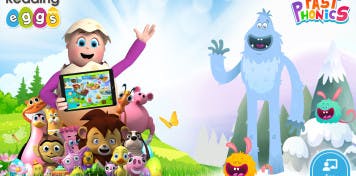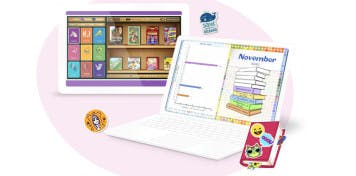


How Reading Eggs Improved Standardised Scores and Lexile Growth in Students

Ysgol Iau Hen Golwyn is a junior school in Old Colwyn, Colwyn Bay, Conwy (Wales, UK). Most students live locally and around 36% of students are eligible for free school meals. This is above the average for Wales.
There are currently 238 students on roll. There are eight classes, two per year group, taught by nine full-time teachers. Three full-time and one part-time learning support staff assist them.
The school currently identifies around 29% of students with additional learning needs. This is in line with the national average.
Very few students come from ethnic minority backgrounds and only one student receives support for English as an additional language. Very few students speak Welsh at home.
The Challenges
The school wanted a resource that incorporated all the five essential elements of a successful reading program: phonemic awareness and phonics, fluency, vocabulary, and text comprehension.
The profile of students at the school is becoming more complex. There are multiple reasons for this – most notably the impact and lasting effects of Covid-19 on students’ well-being, mental health and their delayed learning development due to lockdowns.
David Wynne, the Assistant Headteacher, wanted the school to embrace new teaching and learning practices that allow for differentiation and personalised learning.
The Solution
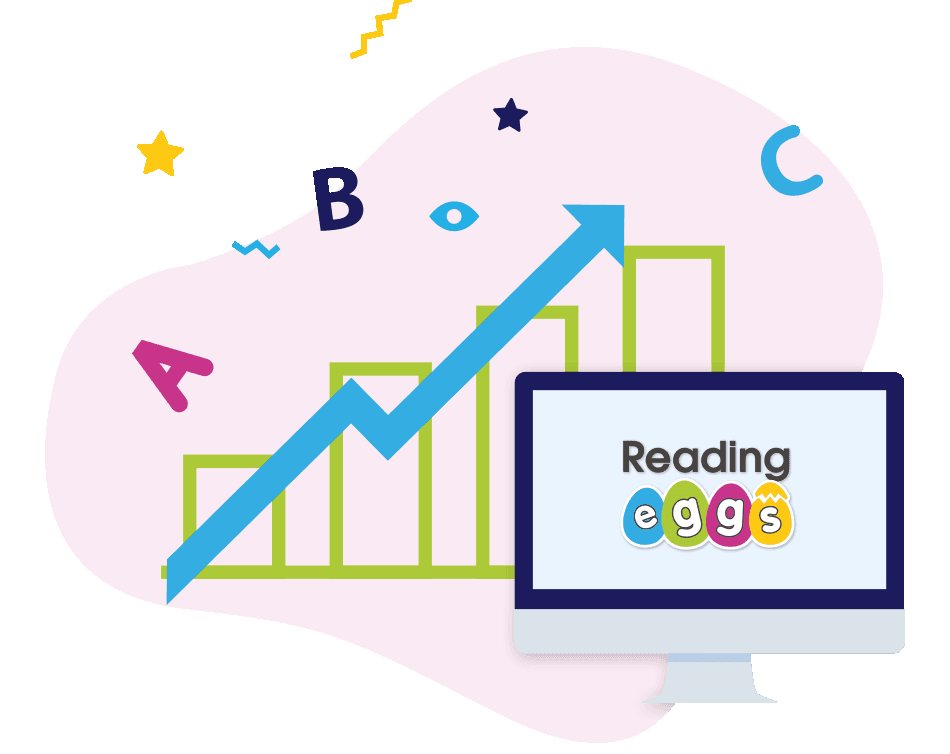
Ysgol Iau Hen Golwyn chose Reading Eggs to improve the development of reading skills and enhance the progression of reading ages in Key Stage 2 students, through both school and home use.
David found that students at the school were really engaged with Reading Eggs and had fun learning with the program.
“By merging the process of learning to read and the development of comprehension skills with a gaming type experience, the students feel like they are not doing school work and feel that they are playing and gaming, not realising that they are learning,” he said.
Students have even been asking for additional time on Reading Eggs.
David shares, “Students will frequently ask to use Reading Eggs if/when they have completed other classwork during the week – this reflects the enthusiasm students have for the program."
"Reading Eggs recognises the importance of student motivation in improving student learner progress and presents age-appropriate, motivational elements that will increase students’ time on task,” he added.
The built-in motivators in Reading Eggs encouraged students at the school to keep going and rewarded them for their effort and achievements.
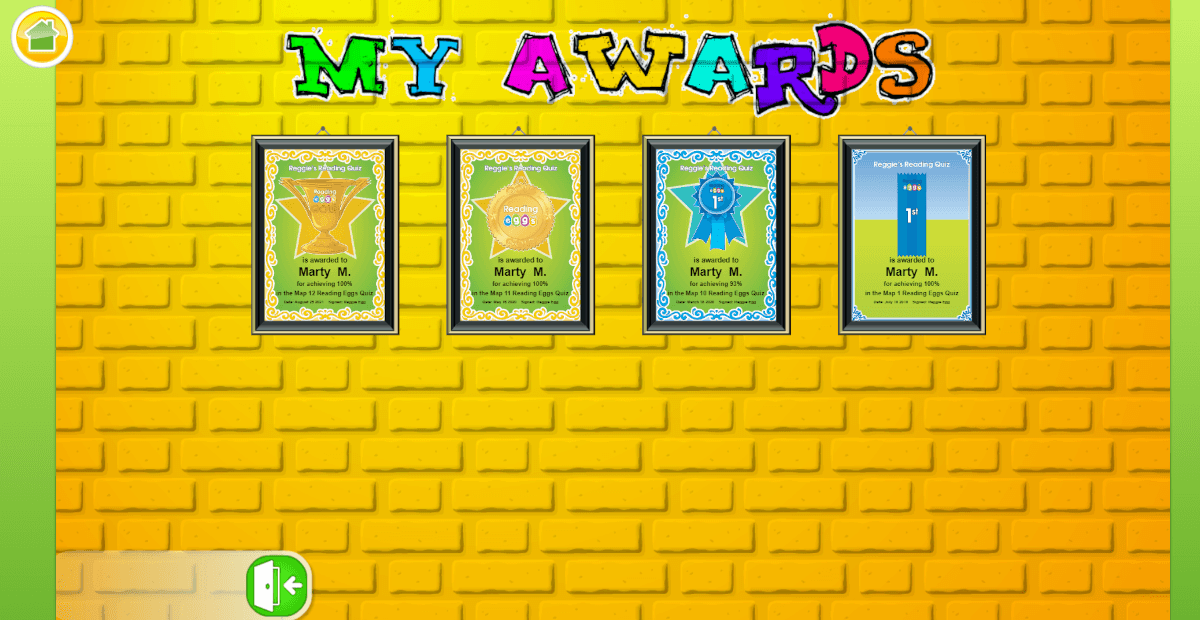
Students earn certificates when they complete the End-of-map quizzes in Reading Eggs.
David explains that this was highly effective, “The wide variety of rewards (such as golden eggs, trophies and avatars) within the program, together with the highly interactive nature of the learning activities makes Reading Eggs a compelling learning experience for young learners."
"The age-appropriate reward systems focus on activities that children enjoy. The reward systems are high-interest, compelling and child-centred and are activated on completion of learning. The students are motivated by this and it has a positive impact on interest and engagement, attention and most importantly learning outcomes.”
Don’t miss out on this multi-award winning program. Jumpstart your students' reading success today!
Bridging the Gap Between School and Home Learning
Reading Eggs is also helping to bridge the gap between school and home learning and enabling parent involvement.
The Assistant Headteacher elaborates how “web-based learning provides the flexibility to allow parents to be involved in their children’s academic success and makes it easier for parents to be involved in their children’s learning.”
For example the Library in Reading Eggs, with over 3,500 e-books, gives students at the school much more choice and variety than before.
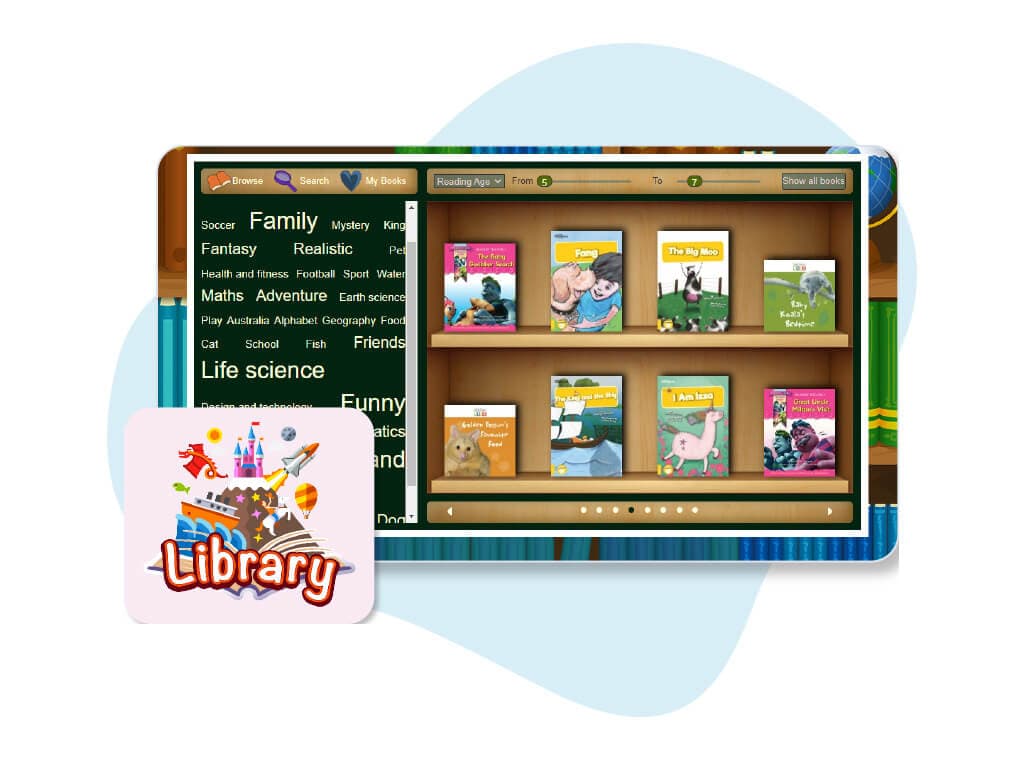
“No longer restricted to a selection of reading boxes in the classroom, students can choose from thousands of books to read," he revealed.
"Library e-books provide level-specific text complexity demands with engaging levelled questions for each book to assess the child’s reading comprehension once the book is completed."
Students at the school read 763 books from the online Library during the last academic year.
There are over 4,000 non-fiction and fiction titles to choose from in the ever-expanding ABC Reading Eggs digital Library. Get access to ALL the books in the Library with a school subscription.
The ability for teachers to assign books from the Library to personalise learning has also been useful, as well as the detailed reporting.
“I’ve assigned specific books to individual students and the Library Reports monitor how many books students have read, types of book, word length and students’ quiz scores. The totals provide an excellent overview of progress – books read, total words read, reading age and quiz average.”
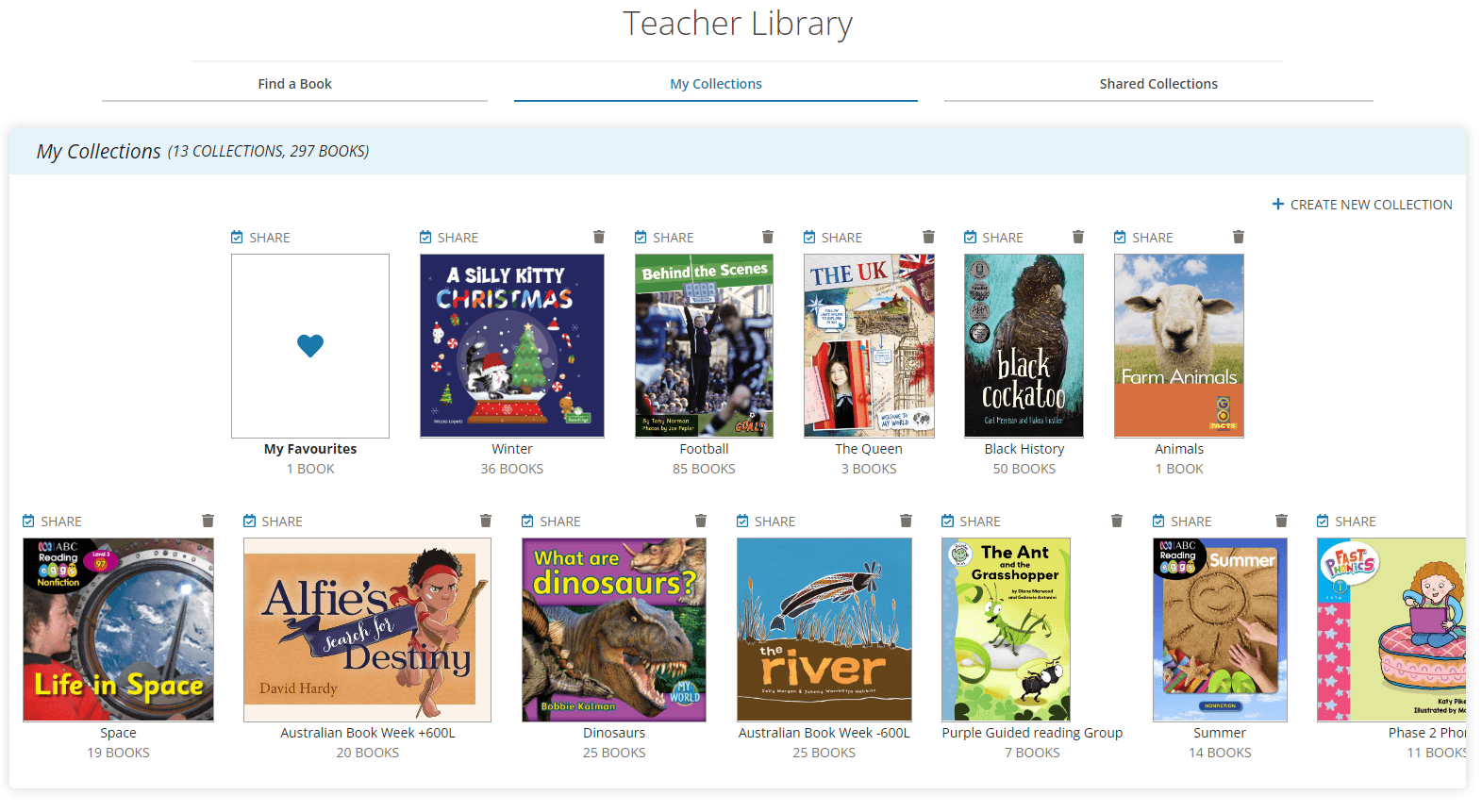
The Teacher Library allows you to access all the books from the Library in your Teacher Dashboard, so you can create custom book collections in just minutes!
Lexile level is a key indicator of progress used in the school and ensures students are reading at the right level.
“Using book bands, a teacher can quickly place students at the right level in the Reading Eggspress program," he added.
"Lesson books increase in Lexile difficulty as students progress through the program and teachers can chart progress through the wide range of reporting tools available."
David points out how "the table makes it easy to keep track of colour bands and Lexile range" and "by telling students their Lexile level, they can search the wide range of fiction and nonfiction books in the Library by Lexile level."
He also adds that "research tells us reading at the right level enables confidence and a lifelong love of reading.”
The following results emerged from last academic year’s use of Reading Eggs:
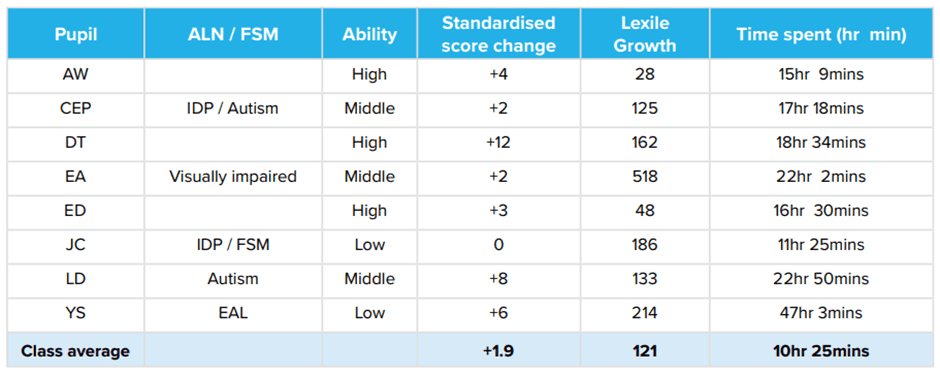
Students achieved an average Lexile growth of 121 and a 1.9 increase in their average standardised score. Additional Learning Needs (ALN)/ Free School Meals (FSM).
The additional reporting elements in Reading Eggs have also been a huge benefit for David and teachers at the school.
“In the Teacher Dashboard, I have been able to monitor the hours students have spent on Reading Eggs, the number of comprehension Lessons completed, quizzes taken and the Lexile Growth of each student. This provides invaluable data for a teacher.”
The Preferred Online Reading Program for Schools
The school is now in their third year of using Reading Eggs and usage is still going strong.
During the last school year, students spent 115,874 minutes learning with Reading Eggs, Reading Eggspress and Fast Phonics, completing 2,661 Lessons and competing in 2,674 Stadium games.
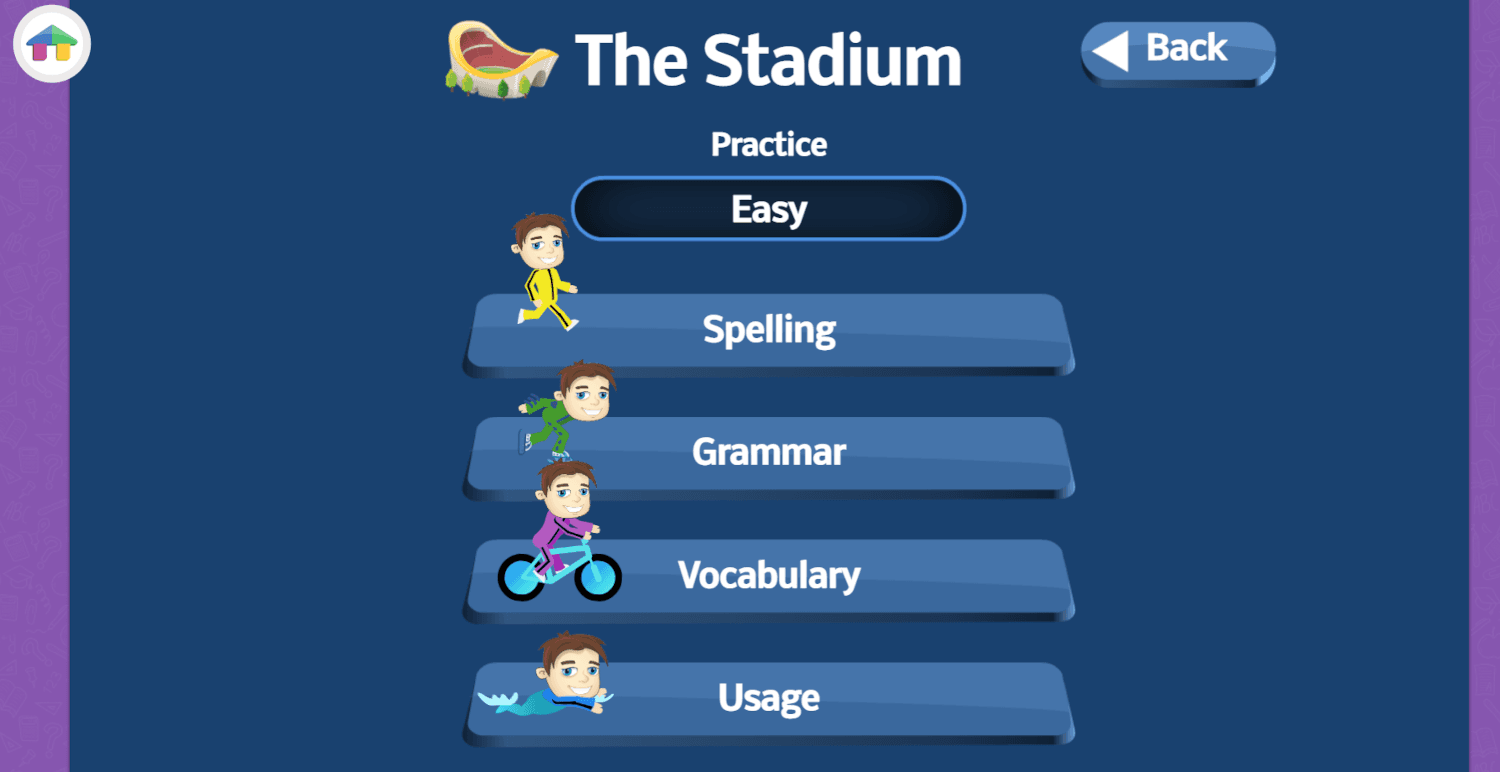
The Stadium in Reading Eggspress offers fun and exciting repetitive practice in a low risk environment, building confidence and promoting language play.
Going forward, David plans to encourage parental engagement by promoting the use of Reading Eggs with parents through letters and ClassDojo messages, parents’ evenings and hosting an information evening for incoming Year 3 parents about the use of Reading Eggs and the benefits of supporting their child with this homework.
Download the school's PDF case study here.
See also David’s research study on Reading Eggs here.
See why over 16,000 primary schools trust Reading Eggs to help their students learn how to read and read for pleasure.

